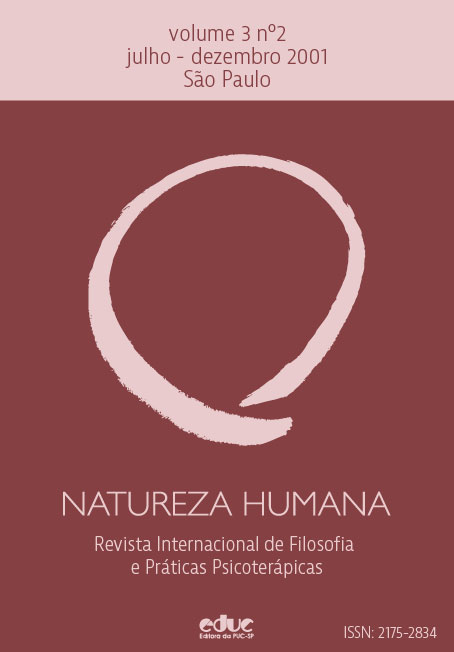Objectivism, intellectualism, and experience of one's own body
DOI:
https://doi.org/10.59539/2175-2834-v3n2-712Keywords:
Merleau-Ponty; fenomenology; body.Abstract
In the philosophy of Merleau-Ponty, the experience of one's own body plays the role of subverting the classical metaphysics categories of subject and object, or more specifically, of the cartesian antinomies between thinking (res cogitans) and extension (res extensa). In this sense, existence is possible as thing or as thought. This generates all sorts of the dichotomies inherited form such a metaphysics, mainly the great difficulty in articulating (a) what is pure extension, external relationships between parts, objective processes of the physical world with (b) consciousness, which is "non extensive", which seems not to occupy any place in spite of its known articulation, or dependence, with the physical world processes (the brain). The objective of the present paper is to present an analysis of three examples, included in the "Phenomenology of Perception", in which Merleau-Ponty tries to overcome these dichotomies by going over the objectivistic conception of body, starting from the very Physiology.Downloads
Published
2024-05-17 — Updated on 2001-05-17
How to Cite
Furlan, R. (2001). Objectivism, intellectualism, and experience of one’s own body. Human Nature - International Philosophy and Psychology Review, 3(2), 289–314. https://doi.org/10.59539/2175-2834-v3n2-712
Issue
Section
Artigos








